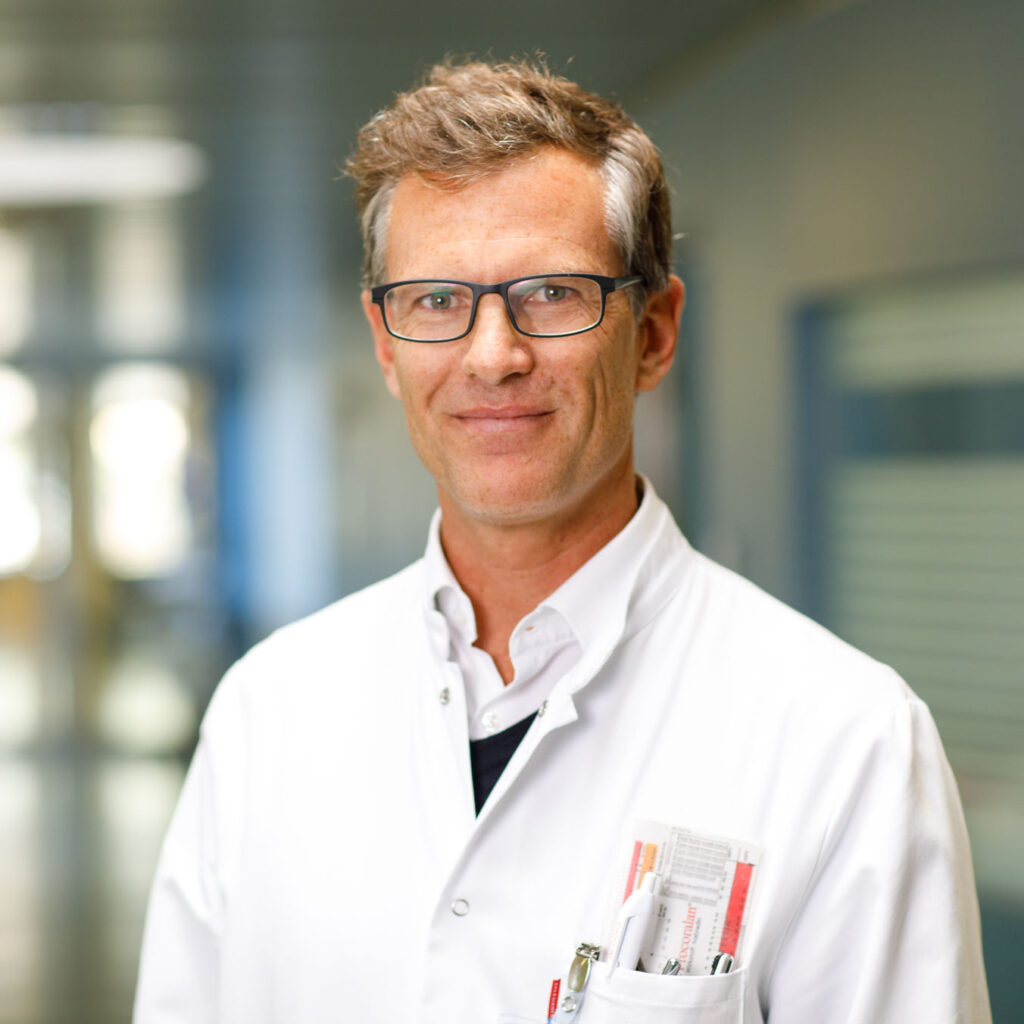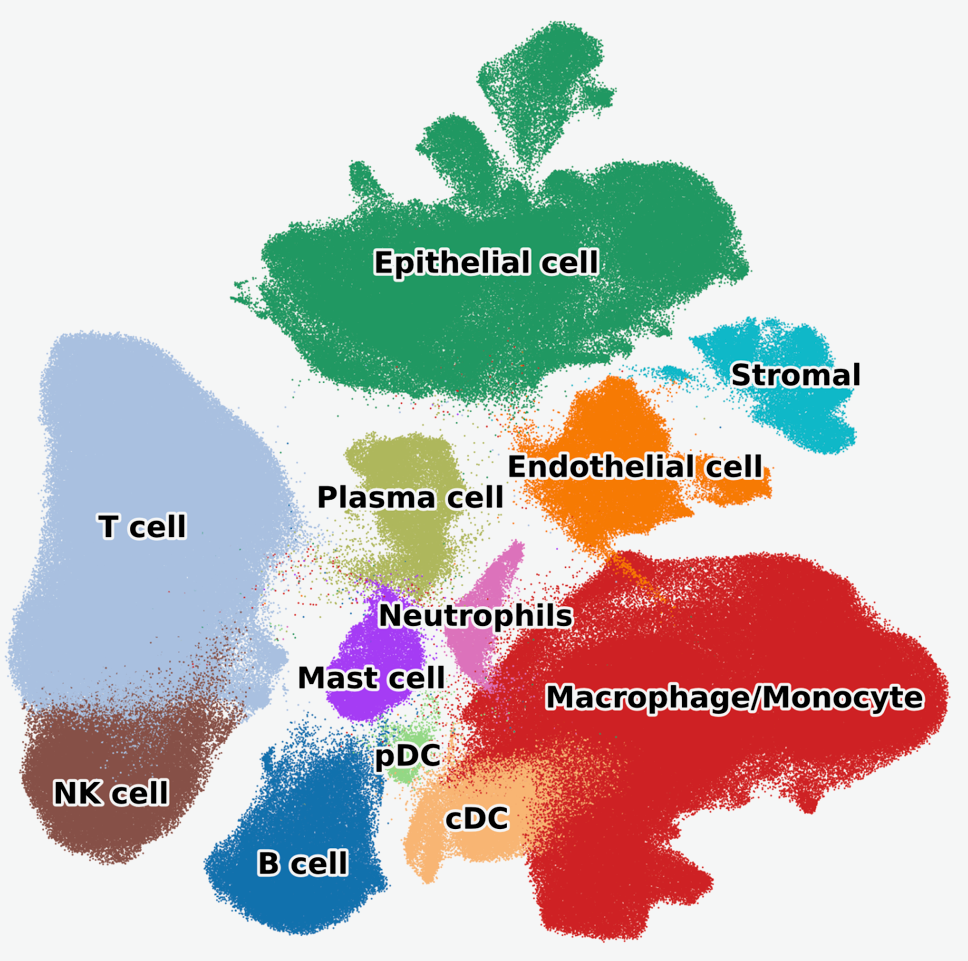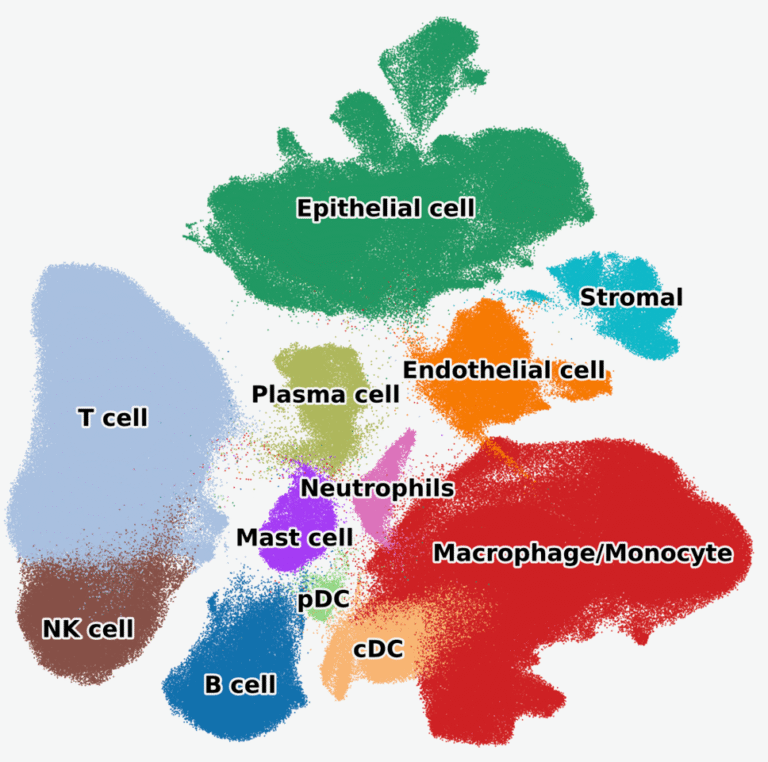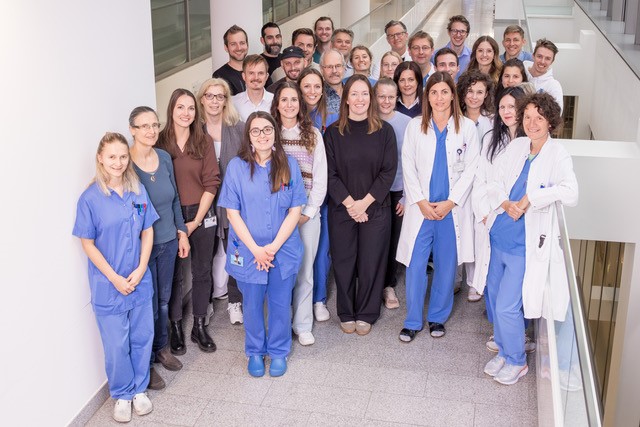
Anichstraße 35
6020 Innsbruck
Fax: +43 (0)50 504 25615
Email: dominik.wolf@i-med.ac.at
Website: https://inneremed5.tirol-kliniken.at/
Research year
Research Branch (ÖSTAT Classification)
302009, 302013, 302024, 302055, 302058
Keywords
cancer immunology, Lung Cancer, Multi-omics, Myeloproliferative Neoplasms, Precision Oncology, Translational Cancer Research, and Tumour Microenvironment
Research Focus
The Department of Internal Medicine V concentrates on translational cancer research, particularly on the immunological cancer microenvironment. High-resolution mapping of primary tumour tissues using multi-omics technologies. We linked this data to behaviour and clinical outcomes with unparalleled expertise. Using this approach, we endeavour to unravel tumour complexity, understand immune heterogeneity, generate predictive signatures and enable the development of personalised therapeutic strategies.
General Facts
The Department of Internal Medicine V at the Medical University of Innsbruck is the place for all clinical and scientific aspects of haematology and oncology. Our division comprises approximately 60 employees, with many members, including students, actively engaged in both clinical work and research. Our laboratories are equipped with state-of-the-art technologies, including high-resolution single-cell RNA sequencing and multiparametric flow cytometry. This allows us to conduct cutting-edge studies into tumour biology and the tumour microenvironment. We are Western Austria’s leading reference centre for the diagnosis, treatment and follow-up of benign and malignant blood diseases in adults, as well as various solid tumours. Through or interdisciplinary collaborations, we ensure optimal patient care.
Research
Currently we are investigating several disease models including lung cancer, MPN, CHIP and lymphoma. We examine the dynamic interactions between malignant cells and their microenvironment—including immune cells, blood vessels and connective tissue by integrating patient-derived samples and advanced cell culture models.
Tumour Microenvironment of Lung Cancer
The Department of Haematology and Oncology focuses on the research of interactions between malignant cells and their tumour microenvironment (TME) in bronchial carcinoma. The TME consists of cellular elements such as fibroblasts, immune cells, and blood vessels, along with non-cellular components like the extracellular matrix. Complex interactions within the TME have a significant impact on tumour progression, metastasis and treatment responses. We have constructed the first high-resolution lung cancer single-cell atlas by using advanced multi-omics technologies.

We utilise patient-derived samples, cell culture systems and ex vivo tumour models. These are the tools we use to develop strategies to modulate both cancer cells and their supportive environment.
Myeloproliferative Neoplasms, CHIP and Inflammation
Myeloproliferative neoplasms (MPNs) are a group of blood disorders. They are characterised by excessive production of blood cells in the bone marrow. Common MPNs include Polycythaemia vera, Essential Thrombocythemia, Primary Myelofibrosis, and Chronic Myeloid Leukaemia. These diseases are caused by genetic mutations in hematopoietic stem cells. The symptoms include itching, blood clots and abnormally low or high counts. Although MPN is currently incurable, we can control the symptoms and slow down the progression of the disease through targeted treatments such as tyrosine kinase inhibitors, phlebotomy or stem cell transplantation. Our research is concentrating on identifying the genetic and molecular drivers of MPNs with a particular emphasis on inflammation. This also links to our focus mechanisms driving other inflammatory syndromes, such as HLH, an exaggerated inflammation syndrome with high mortality. We have also concentrated on CHIP, which is a major risk factor for inflammation-driven progression of atherosclerosis and cardiovascular mortality, which is still the main cause of death in the western world. Together with the Neurology Department and international collaborators, we were able to provide a comprehensive characterisation of stroke patients by individual inflammatory fingerprinting in the context of the respective genetic lesion.
Pictures
Selected Publications
- Daum S, Decristoforo L, Mousa M, Salcher S, Plattner C, Hosseinkhani B, Trajanoski Z, Wolf D, Carmeliet P, Pircher A. Unveiling the immunomodulatory dance: endothelial cells’ function and their role in non-small cell lung cancer. Mol Cancer. 2025 Jan 16;24(1):21. doi: 10.1186/s12943-024-02221-6. PMID: 39819502
- Wolf D, Salcher S, Pircher A. The multivisceral landscape of colorectal cancer metastasis: implications for targeted therapies. J Clin Invest. 2024 Mar 1;134(5):e178331. doi: 10.1172/JCI178331.PMID: 38426495
- Scheiber A, Trebo M, Pittl A, Heidegger I, Hautz T, Oberhuber R, Trajanoski Z, Augustin F, Sopper S, Wolf D,Pircher A, Salcher S. Profiling low-mRNA content cells in complex human tissues using BD Rhapsody single-cell analysis. STAR Protoc. 2024 Dec 20;5(4):103475. doi: 10.1016/j.xpro.2024.103475. Epub 2024 Dec 9.PMID: 39661509
- Salcher, S.; Sturm, G.; Horvath, L.; Untergasser, G.; Kuempers, C.; Fotakis, G.; Panizzolo, E.; Martowicz, A.; Trebo, M.; Pall, G.; Gamerith, G.; Sykora, M.; Augustin, F.; Schmitz, K.; Finotello, F.; Rieder, D.; Perner, S.; Sopper, S.; Wolf, D.; Pircher, A.; Trajanoski, Z., High-resolution single-cell atlas reveals diversity and plasticity of tissue-resident neutrophils in non-small cell lung cancer. Cancer Cell 2022, 40 (12), 1503-1520 e8.
- Hautz, T.; Salcher, S.; Fodor, M.; Sturm, G.; Ebner, S.; Mair, A.; Trebo, M.; Untergasser, G.; Sopper, S.; Cardini, B.; Martowicz, A.; Hofmann, J.; Daum, S.; Kalb, M.; Resch, T.; Krendl, F.; Weissenbacher, A.; Otarashvili, G.; Obrist, P.; Zelger, B.; Öfner, D.; Trajanoski, Z.; Troppmair, J.; Oberhuber, R.; Pircher, A.; Wolf, D.; Schneeberger, S. Immune cell dynamics deconvoluted by single-cell RNA sequencing in normothermic machine perfusion of the liver. Nat Commun 2023, 14(1), 2285.
Selection of Funding
FWF Project 10.55776/PAT4377924 (Andreas Pircher 2025)
In Memoriam Dr. Gabriel Salzner Privatstiftung (Stefan Salcher 2024)
VASCAGE (Dominik Wolf and Kai Zimmer 2025)
Collaborations
Peter Carmeliet, KU Leuven, Leuven, Belgium
Eicke Latz, Deutsches Rheumaforschungszentrum (DRFZ), Germany
Philipp Jost, Medical University of Graz, Graz, Austria
Anna Heine, Medical University of Graz, Graz, Austria
Christoph Binder, Medical University Vienna, Austria
Florian Heidel, University of Hannover (MHH), Germany

